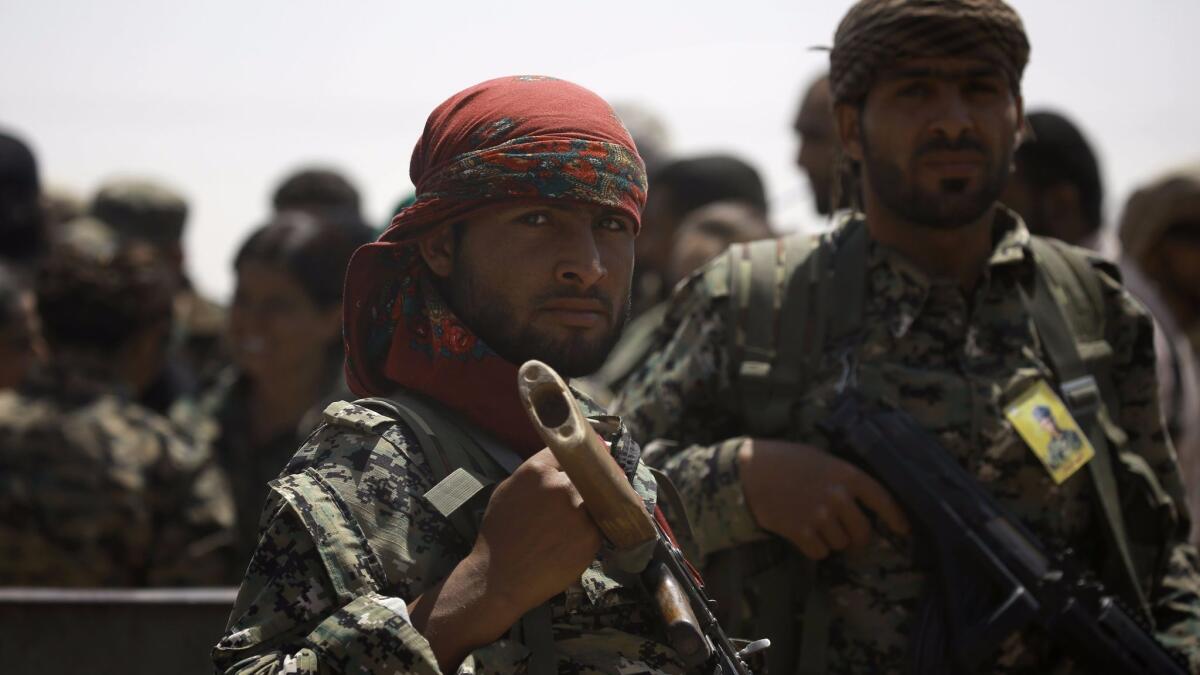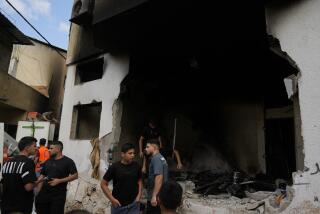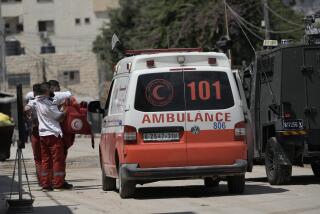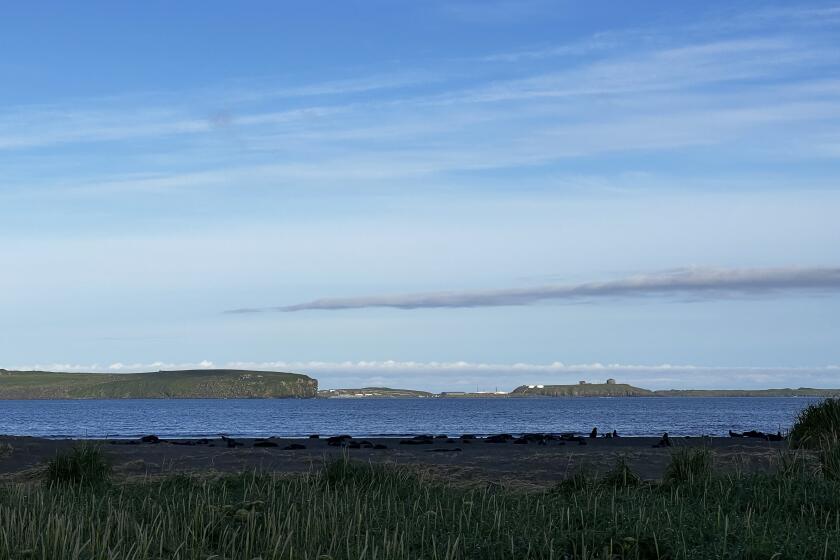Battle begins for Islamic State’s last stronghold in Raqqah

A U.S.-backed alliance of Syrian Kurdish and Arab militias on Tuesday announced the launch of the long-awaited assault on the city of Raqqah, the de facto capital of Islamic State in Syria.
Talal Silo, spokesman for the Syrian Democratic Forces, or SDF, said in a televised news conference from a village north of Raqqah that the Kurdish-dominated alliance was on the cusp of “a historic moment,” having isolated the city from three sides.
“We declare the start of the great battle to liberate the city of Raqqah, the so-called capital of terror and terrorists,” he said.
“We call upon the people of Raqqah city to stay away from the centers of the enemy and the clash areas … and to support our forces and cooperate with them.”
The offensive, dubbed “Anger of the Euphrates,” began with the storming of buildings in the eastern neighborhood of Mishlab by SDF troops fighting alongside U.S. special operations forces, according to a monitoring group, the Syrian Observatory for Human Rights. U.S.-led coalition warplanes pounded Islamic State positions in the area.
Another wing of the attack was engaging the jihadis in Division 17, a military base north of the city.
Brett McGurk, the U.S. special envoy to the coalition against Islamic State, said in a tweet Tuesday that “major operations” led by the SDF had begun to “liberate Raqqah” from Islamic State and “return the city to its people.”
Raqqah was one of the first cities taken by Islamic State in January 2014 during a lightning offensive in which vast swaths of Iraq and Syria were captured. The northern town has been home to the militant group’s leadership and fighters’ families.
Lt. Gen. Stephen Townsend, the commander of the fight against Islamic State, said in a statement Tuesday that the battle for Raqqah is expected to be long and challenging, but necessary to dismantle the militants’ so-called caliphate.
The U.S. has spent months launching airstrikes and supporting Syrian ground forces to cut off supply lines leading into Raqqah, home to an estimated 3,000 to 5,000 Islamic State fighters.
Pentagon spokesman Capt. Jeff Davis told reporters that the U.S. military is supporting the ground offensive with artillery fire from Marine howitzers within Syria as well as airstrikes from warplanes and Apache attack helicopters.
There are also U.S. special operations forces working as advisors alongside the Syrian Democratic Forces, he said.
Davis acknowledged much of Islamic State’s leadership had fled Raqqah in anticipation of the U.S.-backed assault, moving south down the Euphrates River Valley to Dair Alzour and Mayadeen.
Meanwhile, Iraqi forces are steadily routing Islamic State from its last redoubt in the city of Mosul, the largest city the group had controlled in Iraq.
“It’s hard to convince new recruits that ISIS is a winning cause when they just lost their twin ‘capitals’ in both Iraq and Syria,” Townsend said, using an acronym for the extremist group.
The Pentagon believes that dislodging Islamic State from Iraq and Syria will eliminate a haven where the militants can plan attacks in the West.
“We all saw the heinous attack in Manchester, England,” Townsend said. “ISIS threatens all of our nations, not just Iraq and Syria, but in our own homelands as well. This cannot stand.”
The SDF, whose main component is a Kurdish militia known as the People’s Protection Units, or YPG, has been the main recipient of U.S. support in Syria. Last week, the U.S. announced it would ramp up arms and armored vehicle deliveries to the group, which claims to have an estimated 45,000 to 50,000 fighters, including more than 13,000 Arab tribal militiamen.
The Arab contingent is thought to be essential to gaining the support of Raqqah’s local population; many fear the Kurds aim to take the city and include it in a putative Kurdish state in northeastern Syria. But the SDF has insisted that it would hand over Raqqah to local administrative councils.
The start of the campaign coincided with the Syrian army’s takeover of several villages southwest of Raqqah, as part of a larger offensive by Damascus to take back wide stretches of Syria’s eastern desert from Islamic State.
The United States’ assistance to the SDF has angered Turkey, which views Syria’s Kurds as terrorists who collaborate with the outlawed Kurdistan Workers Party, or PKK, with which Ankara has waged a decades-long insurgency war.
“We will not allow any situation that creates a threat to our country,” said Turkish Prime Minister Binali Yildirim in a parliamentary meeting Tuesday, according to the Turkish outlet Daily Sabah.
“If we encounter a threatening situation in Raqqah or the region, we will give the appropriate reply immediately,” he said, indicating military retaliation.
Special correspondent Bulos reported from Mosul and Times staff writer Hennigan from Washington.
ALSO
Why are U.S.-led coalition airstrikes killing friendly troops?
No claims for rickshaw bomb in western Afghanistan that killed 7
British police name third suspect in London Bridge attack
UPDATES:
12:25 p.m.: This article was updated with details from the Pentagon about the U.S. military supporting the ground offensive with artillery fire and airstrikes.
9:05 a.m.: This article was updated throughout with staff reporting.
This article was originally published at 4:50 a.m.
More to Read
Sign up for Essential California
The most important California stories and recommendations in your inbox every morning.
You may occasionally receive promotional content from the Los Angeles Times.










